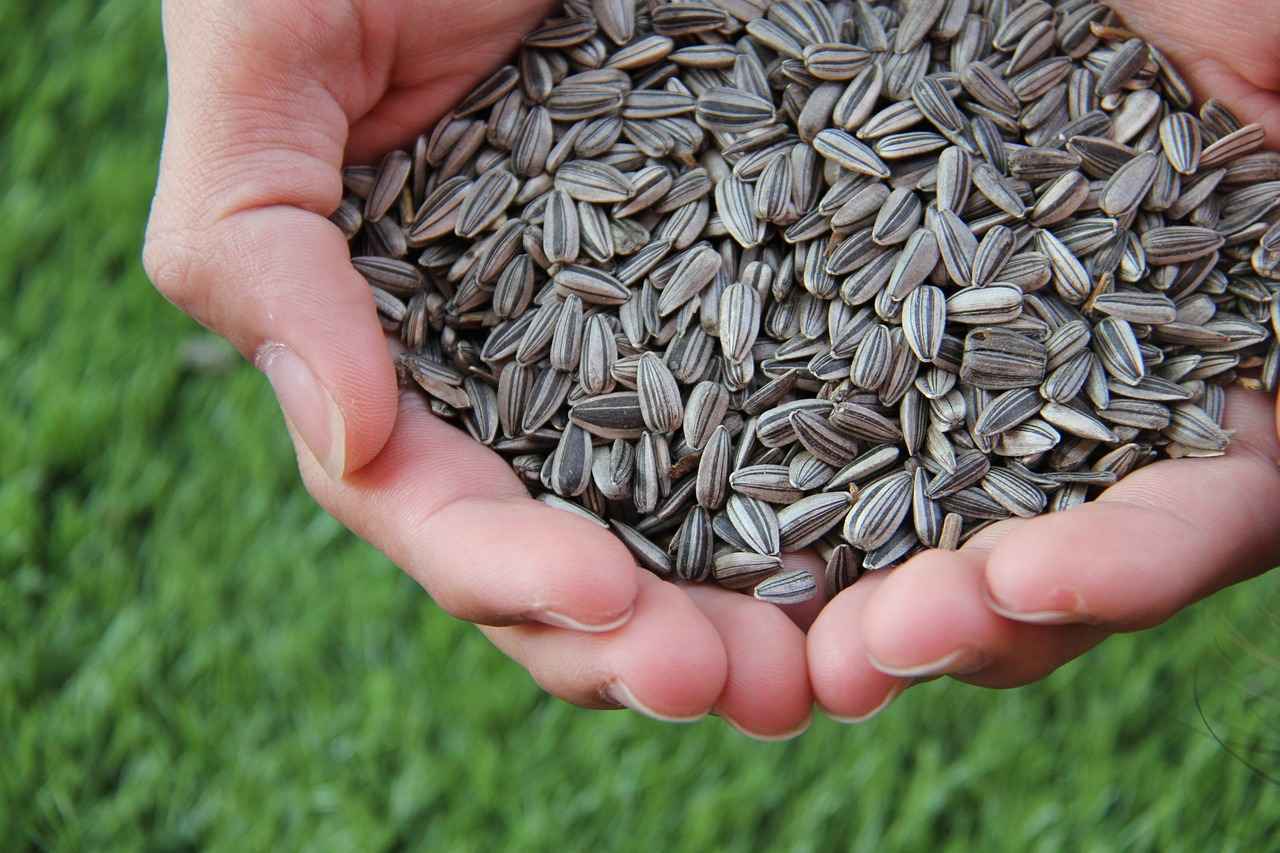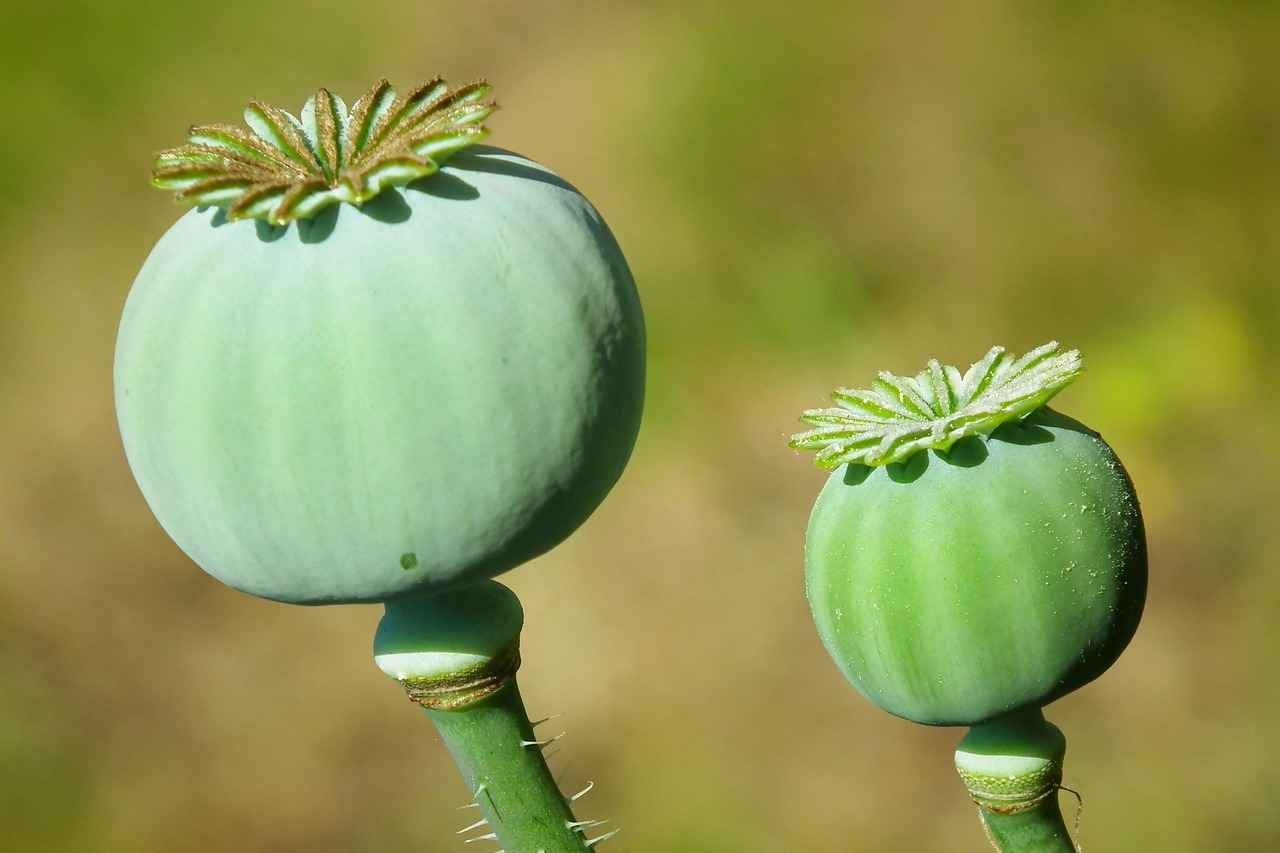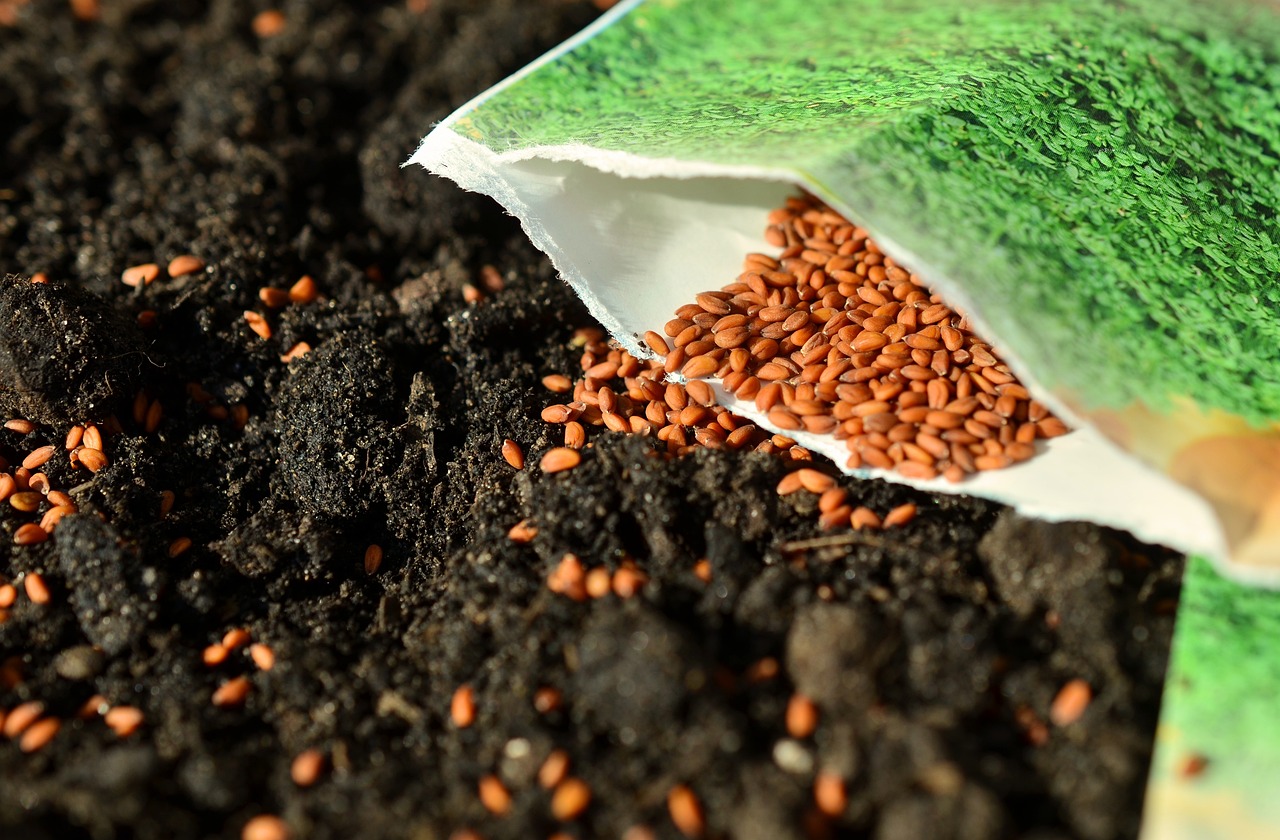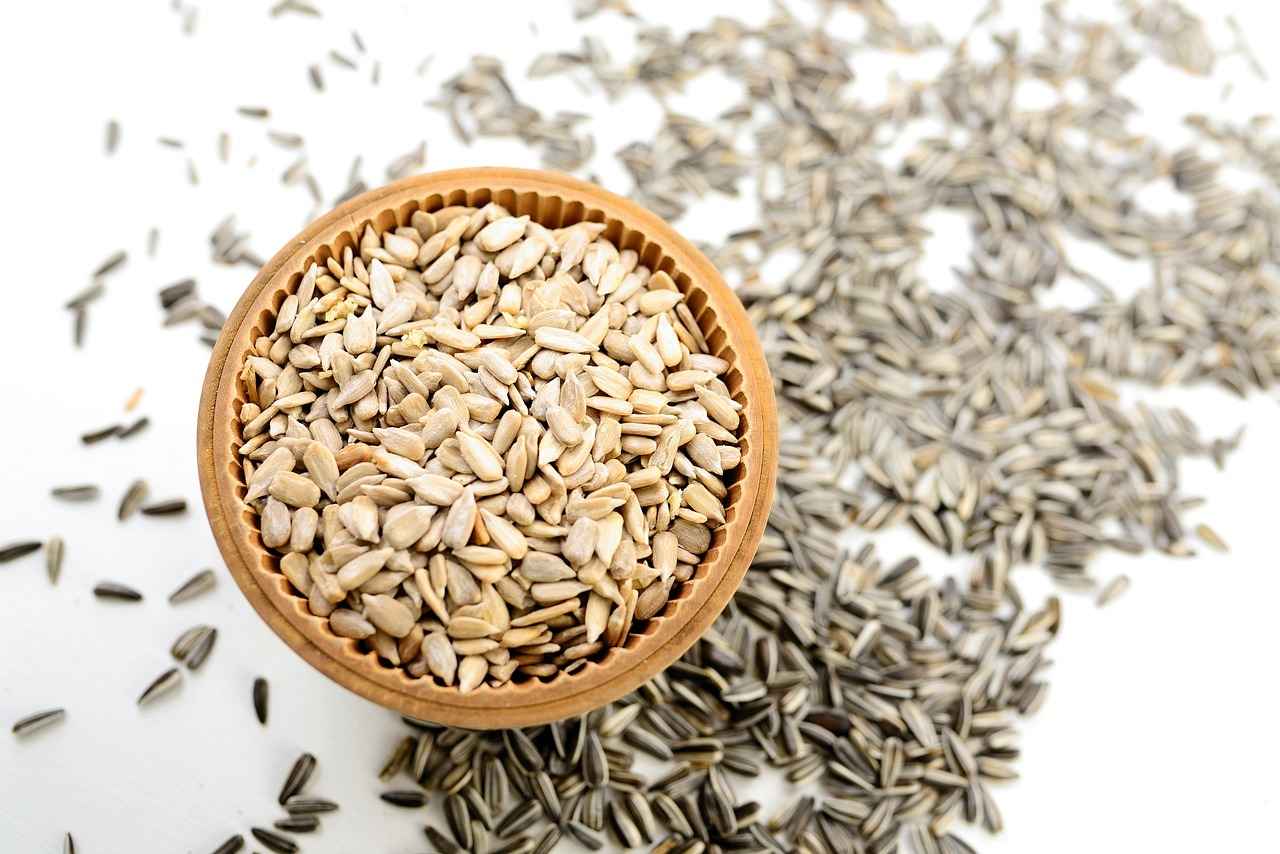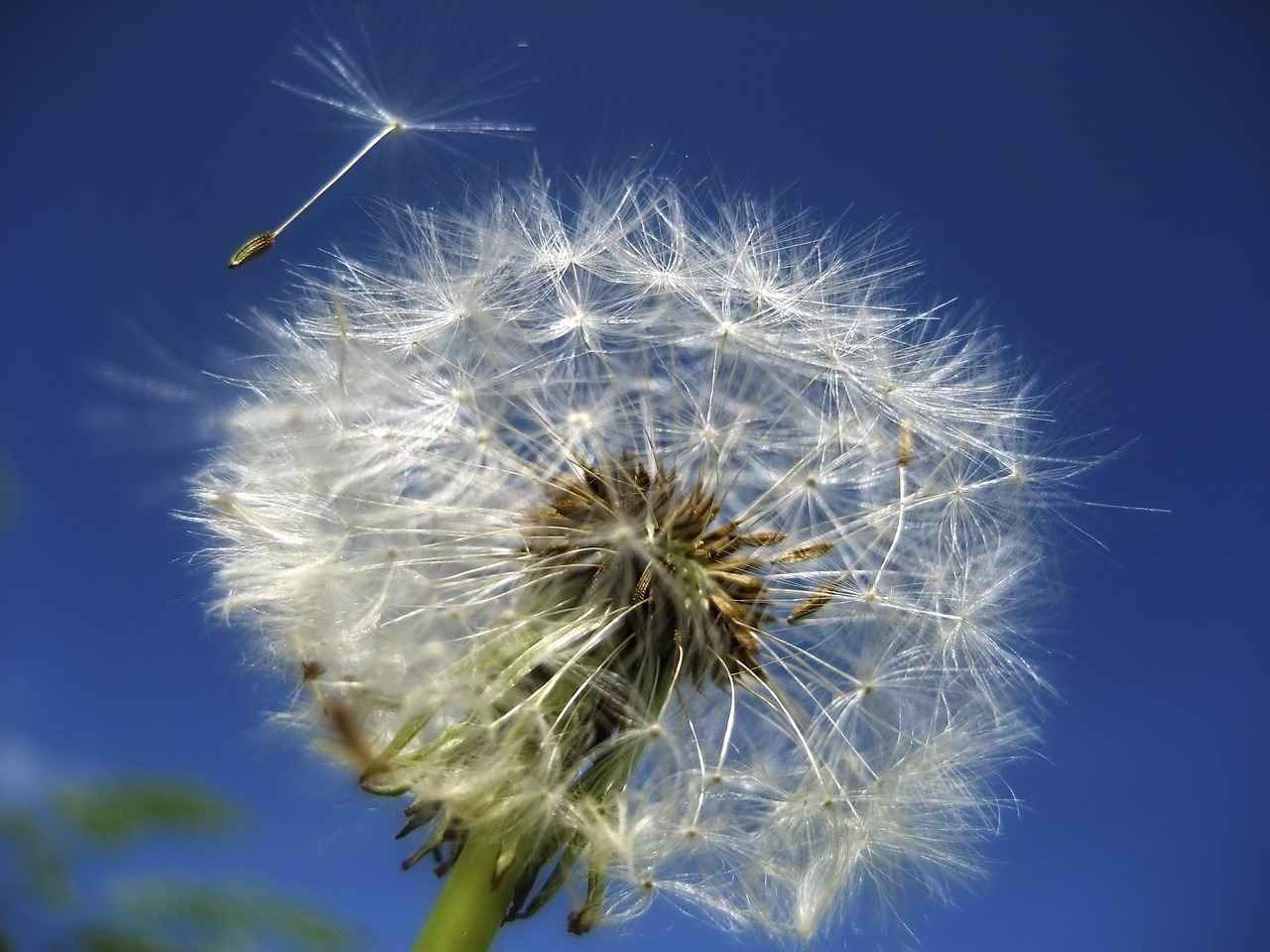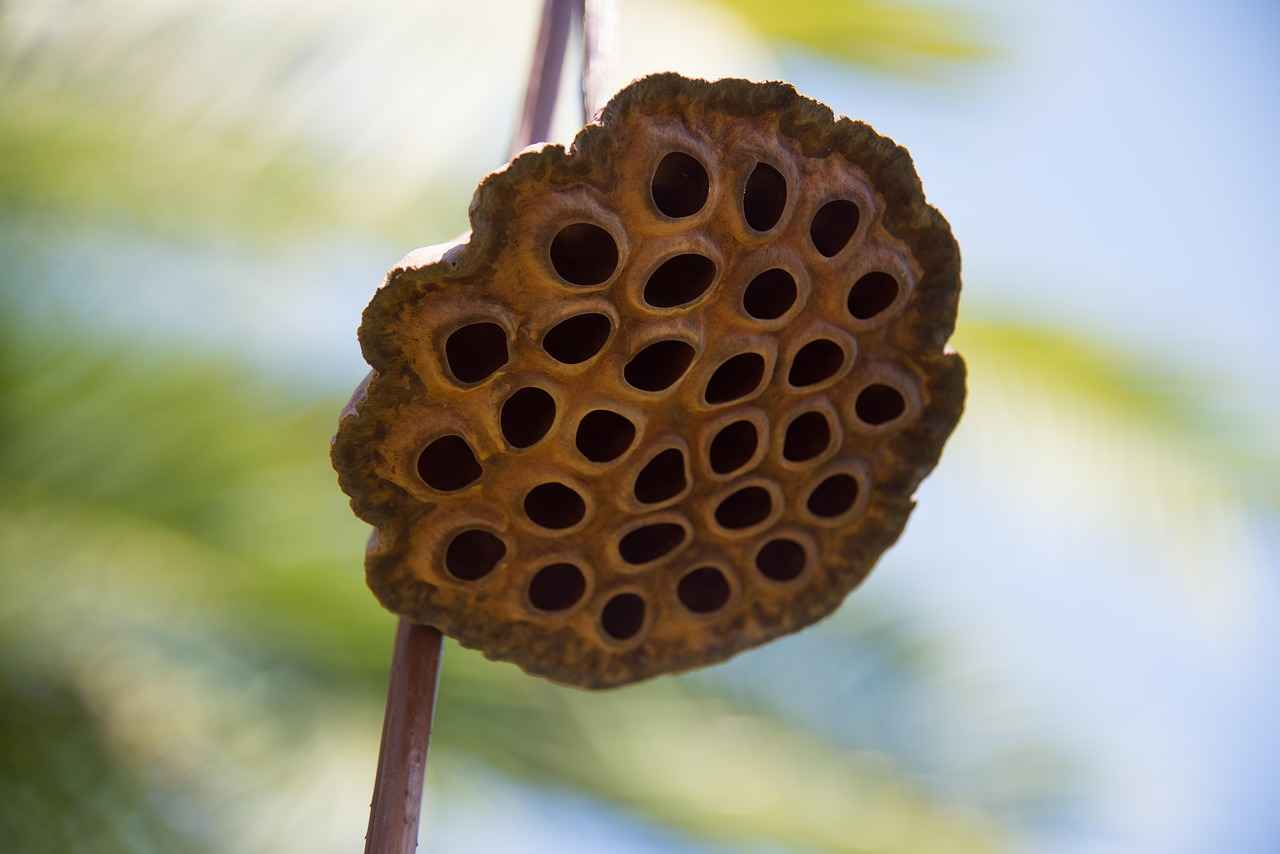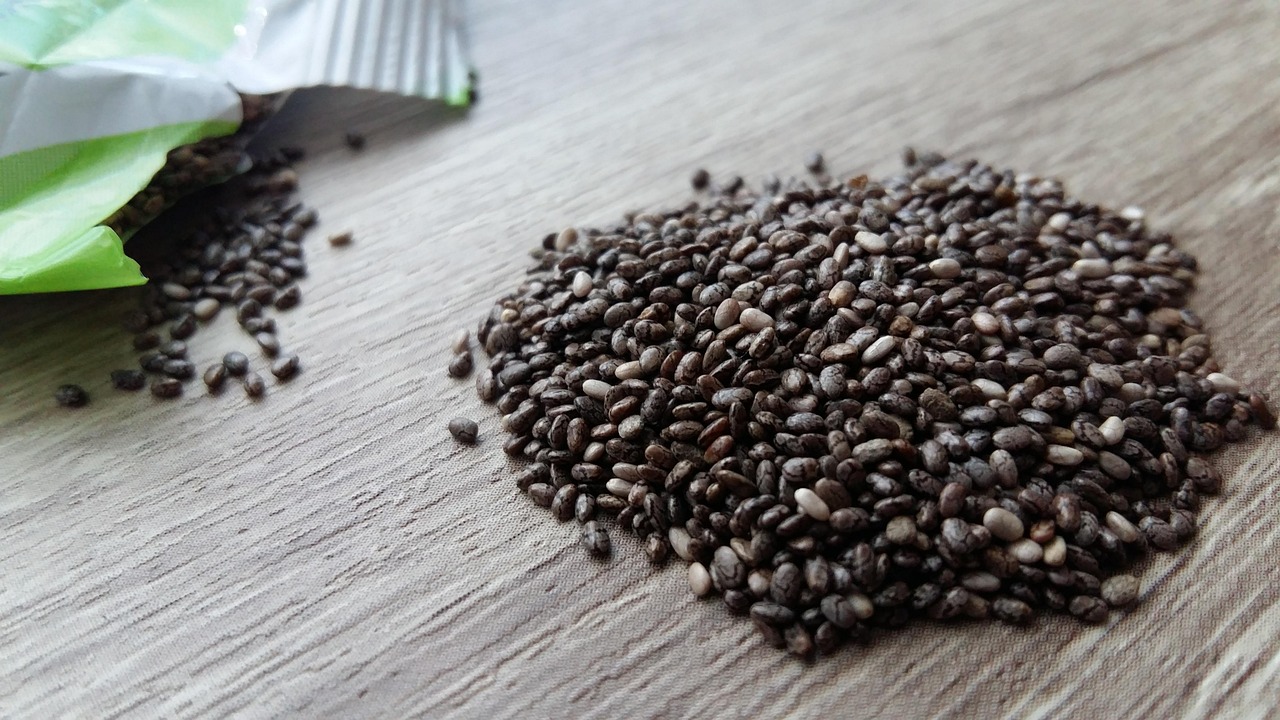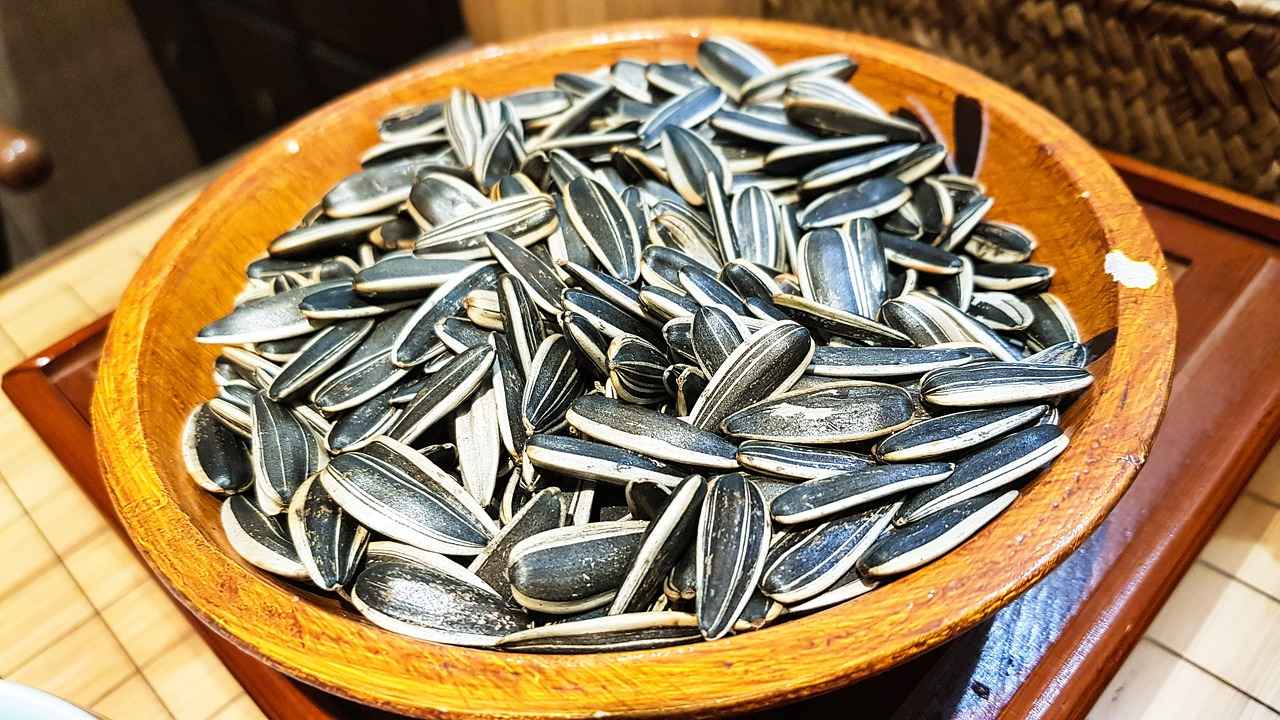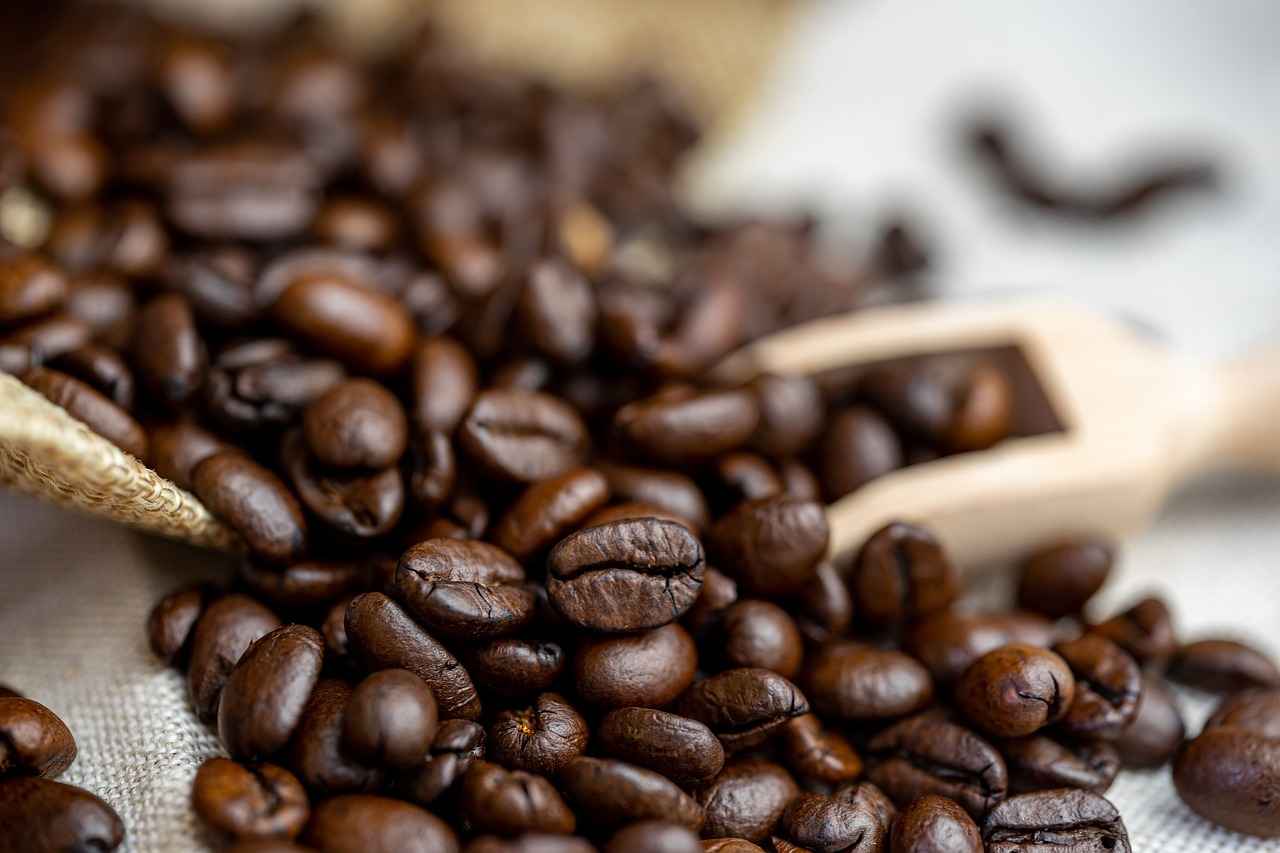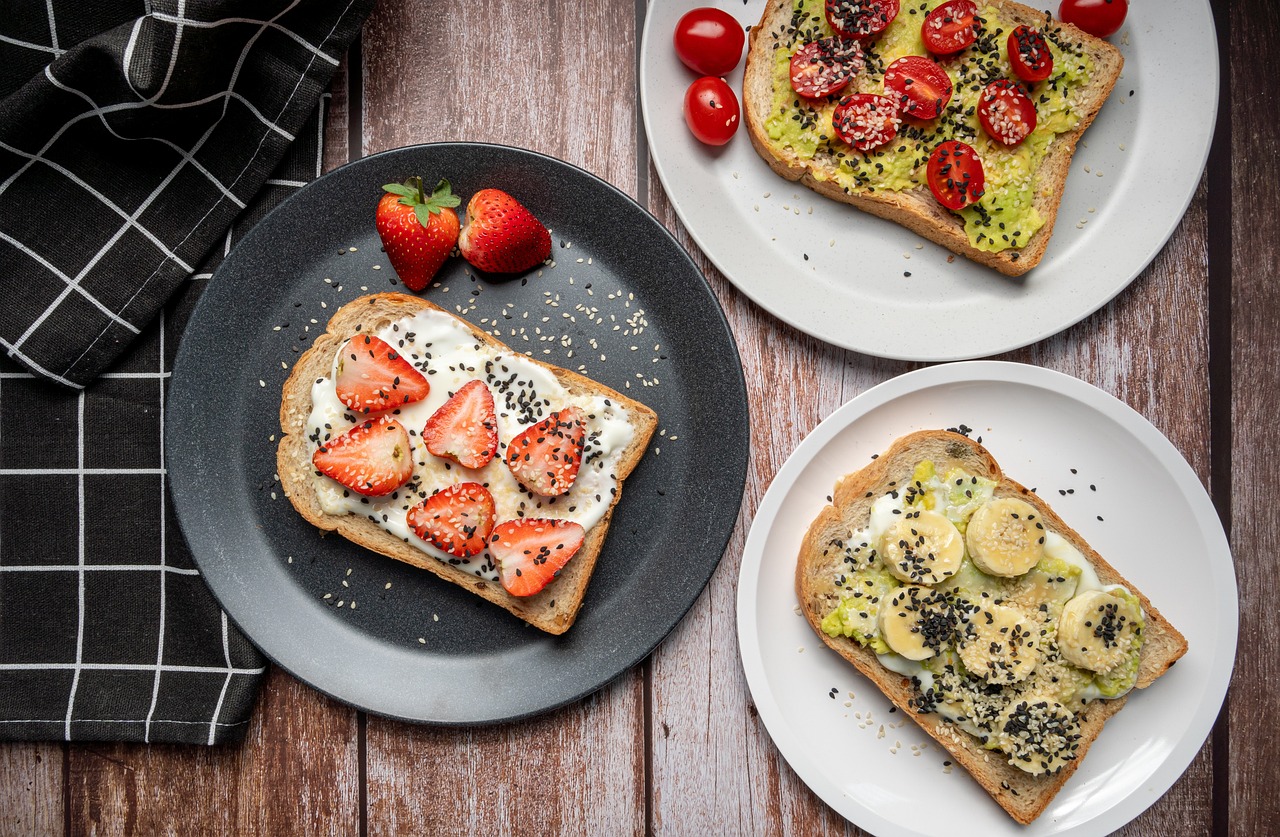This article explores the nutritional profiles and health benefits of chia seeds and basil seeds, helping readers make informed dietary choices between these two superfoods.
What Are Chia Seeds?
Chia seeds are tiny black or white seeds harvested from the Salvia hispanica plant. They have gained popularity due to their impressive nutritional content and numerous health benefits. Rich in omega-3 fatty acids, fiber, and protein, chia seeds are often considered a superfood and have been consumed for centuries.
What Are Basil Seeds?
Basil seeds, also known as sabja or tukmaria, are derived from the sweet basil plant. These seeds are commonly used in traditional drinks and desserts across various cultures, prized for their unique properties and health benefits.
Comparative Nutritional Profiles
Understanding the nutritional profiles of chia and basil seeds allows consumers to better assess their health benefits. Both seeds offer a variety of vitamins and minerals that contribute to overall wellness.
Chia Seeds Nutritional Breakdown
- High in omega-3 fatty acids
- Rich in dietary fiber
- Contains protein and essential minerals such as calcium and magnesium
Basil Seeds Nutritional Breakdown
- Rich in dietary fiber
- Contains antioxidants and essential fatty acids
- Lower in calories compared to chia seeds
Health Benefits of Chia Seeds
Chia seeds offer numerous health benefits, including:
- Improved Digestion: The high fiber content promotes healthy digestion by regulating bowel movements.
- Heart Health: They help lower cholesterol levels and reduce inflammation due to their omega-3 fatty acids.
- Enhanced Energy Levels: The nutritional density provides a sustained energy boost.
Health Benefits of Basil Seeds
Basil seeds are also beneficial, offering:
- Hydration: When soaked, they expand and create a gel-like substance, helping maintain hydration.
- Weight Management: They may aid in weight control by slowing carbohydrate absorption.
- Blood Sugar Regulation: Basil seeds can help stabilize blood sugar levels, making them suitable for diabetics.
How to Incorporate Chia Seeds into Your Diet?
Chia seeds are versatile and can be easily integrated into various dishes:
- Chia Pudding: Combine with milk or yogurt and let soak overnight for a nutritious breakfast.
- Smoothies: Add to smoothies for an extra boost of fiber and omega-3s.
How to Use Basil Seeds in Recipes?
Basil seeds can enhance a variety of recipes:
- Basil Seed Drinks: Soak in water and add to beverages for a refreshing twist.
- Desserts: Sprinkle on puddings or ice creams for added texture and nutrition.
Which Seed Is Better for Weight Loss?
Both chia and basil seeds can aid in weight loss, but they function differently:
- Chia Seeds: Expand in the stomach, promoting fullness and reducing appetite.
- Basil Seeds: Help control blood sugar, which can prevent cravings and overeating.
Potential Side Effects of Chia and Basil Seeds
While generally safe, both seeds may cause side effects in some individuals:
- Chia Seeds: Excessive intake may lead to digestive issues due to their high fiber content.
- Basil Seeds: May cause allergic reactions in some; moderation is key to avoid discomfort.
In conclusion, both chia and basil seeds offer unique nutritional benefits and can be valuable additions to a healthy diet. Whether you choose one over the other may depend on your personal health goals and preferences.

What Are Chia Seeds?
Chia seeds are small, nutrient-dense seeds that originate from the Salvia hispanica plant, which is native to Central America. These tiny seeds, which can be either black or white, have gained immense popularity in recent years due to their remarkable health benefits and versatility in various culinary applications. Traditionally, chia seeds were consumed by ancient civilizations such as the Aztecs and Mayans, who valued them for their energy-boosting properties.
One of the most notable aspects of chia seeds is their impressive nutritional profile. They are an excellent source of omega-3 fatty acids, which are essential for heart health and brain function. In addition to healthy fats, chia seeds are packed with dietary fiber, providing about 11 grams of fiber per ounce. This high fiber content aids in digestion, promotes feelings of fullness, and supports overall gut health.
Chia seeds are also rich in protein, containing all nine essential amino acids, making them a complete protein source for those following a plant-based diet. Furthermore, they provide essential minerals such as calcium, magnesium, and phosphorus, which are vital for maintaining bone health and metabolic functions.
The versatility of chia seeds makes them an easy addition to many dishes. They can be sprinkled on top of salads, blended into smoothies, or used as a thickening agent in recipes like chia pudding. When mixed with liquid, chia seeds absorb water and swell, forming a gel-like consistency that can enhance the texture of various meals.
Moreover, chia seeds are known for their antioxidant properties, which help combat oxidative stress and may reduce the risk of chronic diseases. These antioxidants, including quercetin and chlorogenic acid, contribute to overall health by neutralizing harmful free radicals in the body.
For those looking to incorporate chia seeds into their diet, it is recommended to start with a small amount and gradually increase intake. This approach helps the body adjust to the higher fiber content. Additionally, it is important to consume chia seeds with adequate water to prevent any digestive discomfort.
In summary, chia seeds are a powerhouse of nutrition, offering a wide array of health benefits and culinary uses. Their rich content of omega-3 fatty acids, fiber, protein, and essential minerals makes them a valuable addition to any diet, whether for enhancing overall health or supporting specific dietary goals.

What Are Basil Seeds?
Basil seeds, scientifically known as Ocimum basilicum, are small black seeds derived from the sweet basil plant. Commonly referred to as sabja or tukmaria, these seeds have been used for centuries across various cultures, particularly in Southeast Asia and India, for their culinary and medicinal properties. Their unique characteristics and health benefits have made them increasingly popular in modern diets.
When soaked in water, basil seeds absorb liquid and swell up, forming a gel-like consistency. This property not only enhances their texture but also makes them a popular ingredient in traditional drinks and dishes. Often added to beverages such as lemonade and falooda, these seeds provide a refreshing experience, especially in hot climates.
Yes, basil seeds are nutrient-dense. They are rich in dietary fiber, which aids in digestion and promotes a feeling of fullness, making them beneficial for weight management. Additionally, they contain essential fatty acids, antioxidants, and various vitamins and minerals, contributing to overall health and wellness.
- Hydration: The gel-like consistency formed when soaked in water helps keep the body hydrated.
- Weight Management: Their high fiber content aids in appetite control, making them a great addition to weight loss diets.
- Blood Sugar Regulation: Basil seeds can help regulate blood sugar levels by slowing down carbohydrate absorption, which is particularly beneficial for individuals with diabetes.
- Digestive Health: The fiber in basil seeds promotes healthy digestion and prevents constipation.
Incorporating basil seeds into your diet is easy and versatile. Here are some practical suggestions:
- Basil Seed Drinks: Soak the seeds in water for about 30 minutes before adding them to drinks like coconut water or smoothies for added texture and nutrition.
- In Desserts: Sprinkle soaked basil seeds over desserts such as puddings, ice creams, or fruit salads to enhance flavor and nutritional value.
- In Salads: Add soaked basil seeds to salads for a unique crunch and added health benefits.
While basil seeds are generally safe for most people, it’s important to consume them in moderation. Some individuals may experience allergic reactions or gastrointestinal discomfort if consumed in excess. Always ensure they are properly soaked before consumption to avoid digestive issues.
In summary, basil seeds are a versatile and nutritious addition to any diet. With their numerous health benefits and ease of incorporation into various dishes, they are an excellent choice for those looking to enhance their meals with a superfood that offers both flavor and health advantages.

Comparative Nutritional Profiles
When it comes to making informed dietary choices, understanding the nutritional profiles of chia and basil seeds is essential. Both seeds are celebrated for their unique health benefits, offering an array of vitamins and minerals that contribute to overall wellness. This section delves into the detailed nutritional breakdown of each seed, allowing consumers to assess their health benefits more effectively.
Chia seeds are derived from the Salvia hispanica plant and are often hailed as a superfood due to their impressive nutrient content. Here’s a detailed look at their nutritional profile:
| Nutrient | Amount per 28g |
|---|---|
| Calories | 138 |
| Protein | 4.7g |
| Fat | 8.6g |
| Omega-3 Fatty Acids | 5g |
| Fiber | 10g |
| Calcium | 177mg |
| Magnesium | 95mg |
Chia seeds are particularly rich in omega-3 fatty acids, which are known for their heart health benefits. They also boast high levels of dietary fiber, which aids in digestion and promotes a feeling of fullness.
Basil seeds, also known as sabja seeds, come from the sweet basil plant and are commonly used in various culinary traditions. Here’s a closer look at their nutritional makeup:
| Nutrient | Amount per 28g |
|---|---|
| Calories | 100 |
| Protein | 4g |
| Fat | 0.5g |
| Fiber | 6g |
| Calcium | 250mg |
| Iron | 1.5mg |
Basil seeds are particularly notable for their high calcium content and dietary fiber, making them beneficial for bone health and aiding digestion. They are lower in calories than chia seeds, which can be advantageous for those monitoring their caloric intake.
Both chia and basil seeds offer unique health benefits, but their nutritional profiles cater to different needs:
- Chia Seeds: Best known for their omega-3 fatty acids and high fiber content, making them ideal for heart health and digestive support.
- Basil Seeds: Rich in calcium and antioxidants, they are excellent for hydration and may assist in weight management.
Incorporating both seeds into your diet can provide a well-rounded approach to nutrition, allowing you to enjoy the benefits of each.
Chia Seeds Nutritional Breakdown
Chia seeds are often hailed as a superfood due to their impressive nutritional profile. These tiny seeds, derived from the Salvia hispanica plant, are not only versatile but also packed with essential nutrients that contribute to overall health and wellness. In this section, we will delve into the nutritional breakdown of chia seeds, highlighting their key components and health benefits.
Chia seeds are a rich source of several vital nutrients, making them a popular choice among health enthusiasts. Here are some of the primary nutritional components:
- Omega-3 Fatty Acids: Chia seeds are one of the best plant-based sources of omega-3 fatty acids, which are essential for heart health and cognitive function. They help reduce inflammation and lower cholesterol levels.
- Dietary Fiber: With approximately 11 grams of fiber per ounce, chia seeds are an excellent source of dietary fiber, promoting healthy digestion and aiding in weight management by enhancing feelings of fullness.
- Protein: Chia seeds contain about 4 grams of protein per ounce, making them a valuable addition to vegetarian and vegan diets. Protein is crucial for muscle repair and growth.
- Essential Minerals: These seeds are rich in essential minerals such as calcium, magnesium, and phosphorus, which are vital for bone health and metabolic functions.
- Antioxidants: Chia seeds are loaded with antioxidants that combat oxidative stress and protect the body from free radical damage.
The nutritional components of chia seeds contribute to various health benefits, including:
- Improved Digestion: The high fiber content aids in regulating bowel movements and preventing constipation, promoting a healthy digestive system.
- Heart Health: Omega-3 fatty acids play a significant role in reducing inflammation and lowering blood pressure, contributing to overall cardiovascular health.
- Weight Management: Chia seeds expand in the stomach, providing a sense of fullness that can help reduce calorie intake and assist in weight loss efforts.
- Bone Health: The calcium and magnesium content supports bone density and strength, making chia seeds a great dietary addition for maintaining healthy bones.
Incorporating chia seeds into your diet is easy and versatile. Here are some practical ways to enjoy them:
- Chia Pudding: Mix chia seeds with milk or a dairy alternative and let them sit overnight to create a delicious pudding.
- Smoothies: Add a tablespoon of chia seeds to your favorite smoothie for an extra boost of nutrition.
- Baking: Incorporate chia seeds into baked goods like muffins or bread for added texture and health benefits.
In summary, chia seeds are a nutrient-dense superfood that offers a plethora of health benefits. Their rich content of omega-3 fatty acids, fiber, protein, and essential minerals makes them a valuable addition to any diet. Whether you choose to sprinkle them on your meals or blend them into smoothies, the versatility of chia seeds ensures that you can easily enjoy their nutritional advantages.
Basil Seeds Nutritional Breakdown
Basil seeds, also known as sabja or tukmaria seeds, are gaining popularity as a nutritious addition to various diets. These tiny black seeds, derived from the sweet basil plant, are not only a culinary delight but also a powerhouse of nutrients. In this section, we will delve deeper into the nutritional breakdown of basil seeds and explore their numerous health benefits, making them a worthy contender in the superfood category.
Basil seeds stand out for their impressive nutritional profile. They are particularly rich in dietary fiber, which is essential for maintaining digestive health. A single ounce of basil seeds can provide approximately 6 grams of fiber, which contributes significantly to the recommended daily intake. This high fiber content helps in promoting a feeling of fullness, making them beneficial for those looking to manage their weight.
Another remarkable aspect of basil seeds is their high concentration of antioxidants. These compounds play a crucial role in protecting the body from oxidative stress caused by free radicals. The antioxidants found in basil seeds, such as flavonoids and phenolic acids, help combat inflammation and may reduce the risk of chronic diseases, including heart disease and cancer.
Basil seeds are also a source of essential fatty acids, particularly alpha-linolenic acid (ALA), which is a plant-based omega-3 fatty acid. Consuming ALA is beneficial for heart health, as it can help lower cholesterol levels and support overall cardiovascular function. This makes basil seeds a heart-friendly option, especially for those following a vegetarian or vegan diet.
One of the most appealing features of basil seeds is their low calorie content. With only about 30 calories per tablespoon, they can be easily incorporated into various dishes without significantly increasing caloric intake. This makes them an excellent choice for those seeking to lose or maintain weight while still enjoying nutritious foods.
When soaked in water, basil seeds expand and form a gel-like consistency. This unique property not only adds texture to drinks and desserts but also aids in hydration. Consuming basil seeds can help keep the body cool and hydrated, especially in hot climates, making them a popular ingredient in refreshing beverages.
- Basil Seed Drinks: Soak basil seeds in water for about 30 minutes and add them to beverages like lemonade or smoothies for a nutritious boost.
- Incorporating into Desserts: Sprinkle soaked basil seeds on puddings, yogurt, or ice creams for added texture and health benefits.
- In Salads: Mix basil seeds into salads to enhance the nutritional value and add a delightful crunch.
Basil seeds can be a great addition for anyone looking to improve their overall health. They are especially beneficial for individuals seeking to increase their fiber intake, manage their weight, or enhance their antioxidant consumption. However, it is essential to consume them in moderation and ensure adequate hydration, as they can expand in the stomach.
In summary, basil seeds offer a wealth of nutritional benefits, making them an excellent choice for health-conscious individuals. Their unique properties, combined with their versatility in culinary applications, make them a valuable addition to any diet.
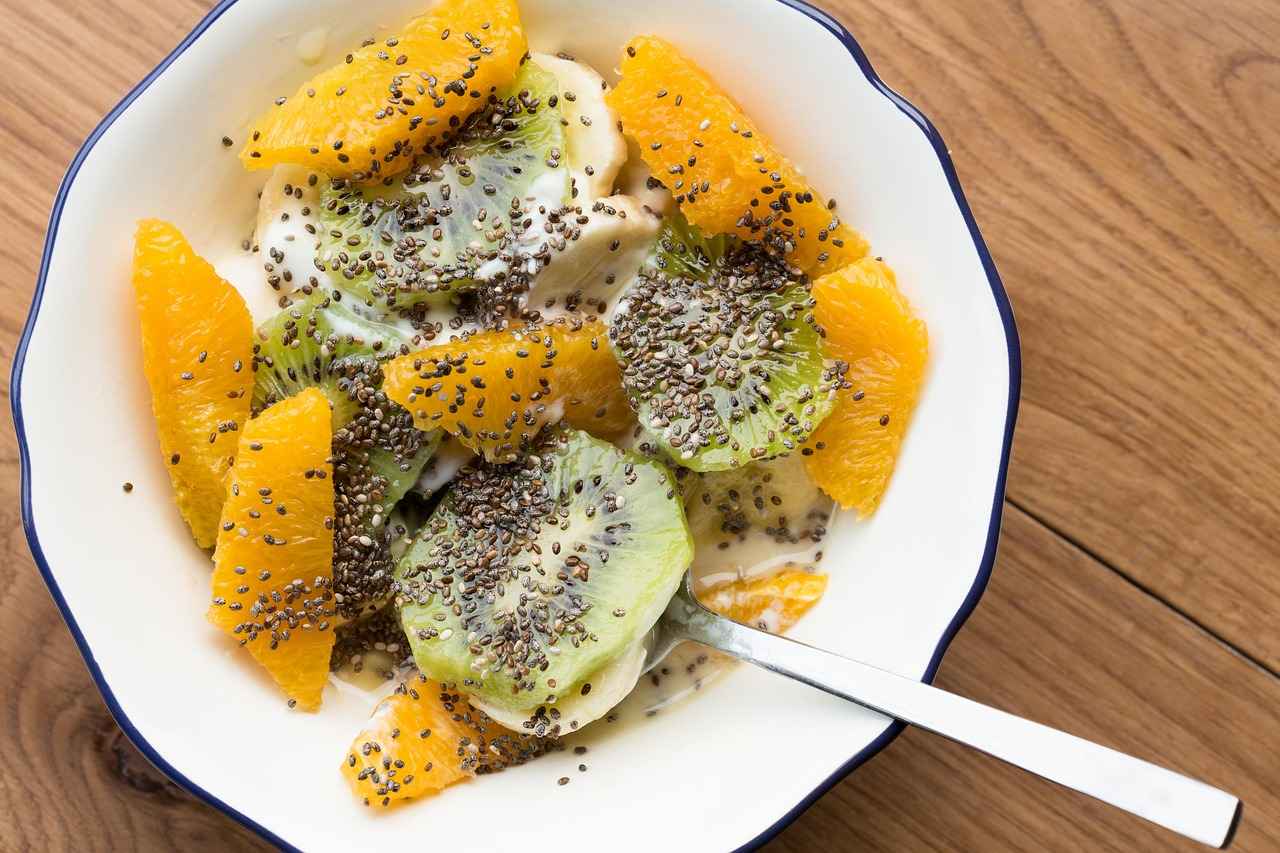
Health Benefits of Chia Seeds
Chia seeds have become increasingly popular among health enthusiasts for their remarkable health benefits. These tiny seeds, which are derived from the Salvia hispanica plant, are not only rich in nutrients but also versatile in their use. Below, we explore the various health benefits of chia seeds, emphasizing their impact on digestion, heart health, energy levels, and more.
One of the standout features of chia seeds is their high fiber content. A single ounce of chia seeds contains approximately 11 grams of fiber, which is crucial for maintaining a healthy digestive system. The soluble fiber found in chia seeds absorbs water, forming a gel-like substance that helps regulate bowel movements and prevent constipation. This property makes chia seeds an excellent addition to any diet aimed at improving digestive health.
Chia seeds are also known to promote heart health. They are rich in omega-3 fatty acids, particularly alpha-linolenic acid (ALA), which has been shown to lower cholesterol levels and reduce inflammation. Regular consumption of chia seeds can help maintain healthy blood pressure and improve overall cardiovascular function. Studies suggest that incorporating chia seeds into your diet can significantly reduce the risk of heart disease.
For those seeking an energy boost, chia seeds can be a game-changer. The combination of protein, healthy fats, and fiber provides a steady release of energy, making them an ideal snack for athletes and active individuals. Unlike sugary snacks that cause energy spikes and crashes, chia seeds offer sustained energy, helping to enhance performance and endurance during workouts.
Chia seeds can be a valuable ally in weight management. Their ability to absorb water allows them to expand in the stomach, creating a feeling of fullness or satiety. This can help control appetite and reduce overall calorie intake, making it easier to maintain a healthy weight. Additionally, the fiber in chia seeds aids in digestion and can prevent cravings, further supporting weight loss efforts.
Another significant benefit of chia seeds is their contribution to bone health. They are an excellent source of essential minerals such as calcium, magnesium, and phosphorus. Just two tablespoons of chia seeds provide about 18% of the recommended daily intake of calcium, making them a fantastic option for those looking to strengthen their bones and prevent osteoporosis.
Chia seeds may also play a role in regulating blood sugar levels. Their high fiber content slows down the absorption of sugar in the bloodstream, which can help prevent spikes in blood sugar levels. This property is particularly beneficial for individuals with diabetes or those looking to maintain stable energy levels throughout the day.
Incorporating chia seeds into your diet is easy and versatile. Here are some practical ways to enjoy their benefits:
- Chia Pudding: Combine chia seeds with milk or a milk alternative, sweeten with honey or maple syrup, and let it sit overnight in the refrigerator.
- Smoothies: Add a tablespoon of chia seeds to your favorite smoothie for an extra boost of nutrition.
- Baking: Use chia seeds as an egg substitute in baking by mixing them with water to create a gel-like consistency.
- Sprinkling: Sprinkle chia seeds on salads, yogurt, or oatmeal for added texture and health benefits.
In summary, chia seeds are a nutritional powerhouse that offers a wide range of health benefits, from improving digestion to supporting heart health and aiding in weight management. Their versatility makes them an easy addition to any diet, allowing individuals to reap the numerous advantages they provide.
Digestive Health
is a crucial aspect of overall well-being, and incorporating the right foods into your diet can significantly enhance it. One such food that stands out is chia seeds, known for their remarkable nutritional profile and health benefits.
The high fiber content in chia seeds is the key factor that promotes healthy digestion. These tiny seeds contain approximately 11 grams of fiber per ounce, which is essential for maintaining regular bowel movements. Fiber plays a vital role in adding bulk to the stool, making it easier to pass and thus preventing constipation.
- Regulates Bowel Movements: The soluble fiber in chia seeds absorbs water, forming a gel-like substance that helps facilitate smooth movement through the digestive tract.
- Supports Gut Health: Fiber acts as a prebiotic, promoting the growth of beneficial gut bacteria, which is essential for a healthy digestive system.
- Reduces Bloating: By promoting regularity, chia seeds can help reduce bloating and discomfort often associated with digestive issues.
Incorporating chia seeds into your diet can be simple and delicious. Here are a few practical ideas:
- Chia Seed Pudding: Mix chia seeds with your choice of milk (dairy or plant-based), add a sweetener, and let it sit overnight. This makes a nutritious breakfast or snack.
- Smoothies: Add a tablespoon of chia seeds to your morning smoothie for an extra fiber boost without changing the flavor.
- Salads: Sprinkle chia seeds over salads or mix them into dressings for added crunch and nutrition.
While chia seeds offer numerous digestive benefits, it is important to consume them in moderation. Due to their high fiber content, excessive intake may lead to digestive discomfort, especially if not accompanied by adequate hydration. It is advisable to start with a small amount and gradually increase your intake to allow your digestive system to adjust.
In summary, chia seeds are a powerhouse of fiber that can significantly enhance digestive health. By incorporating these tiny seeds into your daily diet, you can enjoy improved bowel regularity, reduced bloating, and better gut health. Remember to consume them with plenty of water to maximize their benefits and minimize any potential side effects.
Heart Health
Heart health is a crucial aspect of overall well-being, and the foods we consume play a significant role in maintaining a healthy cardiovascular system. Among the various superfoods available, chia seeds have gained considerable attention for their beneficial effects on heart health. This article delves into how chia seeds contribute to heart health, particularly through their ability to lower cholesterol levels and reduce inflammation, thanks to their rich omega-3 fatty acid content.
Chia seeds are small but mighty, packed with essential nutrients that can significantly impact heart health. Their high content of omega-3 fatty acids is particularly noteworthy. Omega-3s are known for their ability to lower levels of LDL (bad) cholesterol while raising HDL (good) cholesterol, thus promoting a healthier lipid profile.
Maintaining optimal cholesterol levels is vital for cardiovascular health. High levels of LDL cholesterol can lead to plaque buildup in the arteries, increasing the risk of heart disease. Chia seeds help combat this issue in several ways:
- Omega-3 Fatty Acids: These fatty acids are anti-inflammatory and can help reduce arterial inflammation, which is a significant factor in cardiovascular diseases.
- Fiber Content: Chia seeds are an excellent source of soluble fiber, which can help lower cholesterol levels by binding to bile acids in the digestive system and facilitating their excretion.
- Antioxidants: The antioxidants present in chia seeds help combat oxidative stress, which can also contribute to heart disease.
Chronic inflammation is another risk factor for heart disease. The omega-3 fatty acids in chia seeds possess anti-inflammatory properties that can help reduce inflammation throughout the body. This is crucial, as persistent inflammation can damage blood vessels and lead to various cardiovascular issues.
Incorporating chia seeds into your daily diet is simple and can be done in various delicious ways:
- Chia Puddings: Mix chia seeds with almond milk or yogurt, let them soak overnight, and enjoy a nutritious breakfast.
- Smoothies: Add a tablespoon of chia seeds to your morning smoothie for an extra boost of omega-3s and fiber.
- Salads and Soups: Sprinkle chia seeds on salads or mix them into soups for added texture and health benefits.
While chia seeds are generally safe for most people, it’s essential to consume them in moderation. Due to their high fiber content, excessive intake may lead to digestive issues, especially if not accompanied by sufficient water. Always consult with a healthcare professional if you have specific health concerns or dietary restrictions.
In conclusion, chia seeds are a powerhouse of nutrition that can significantly contribute to heart health. Their ability to lower cholesterol levels and reduce inflammation makes them an excellent addition to a heart-healthy diet. With their versatility, incorporating chia seeds into meals can be both enjoyable and beneficial.
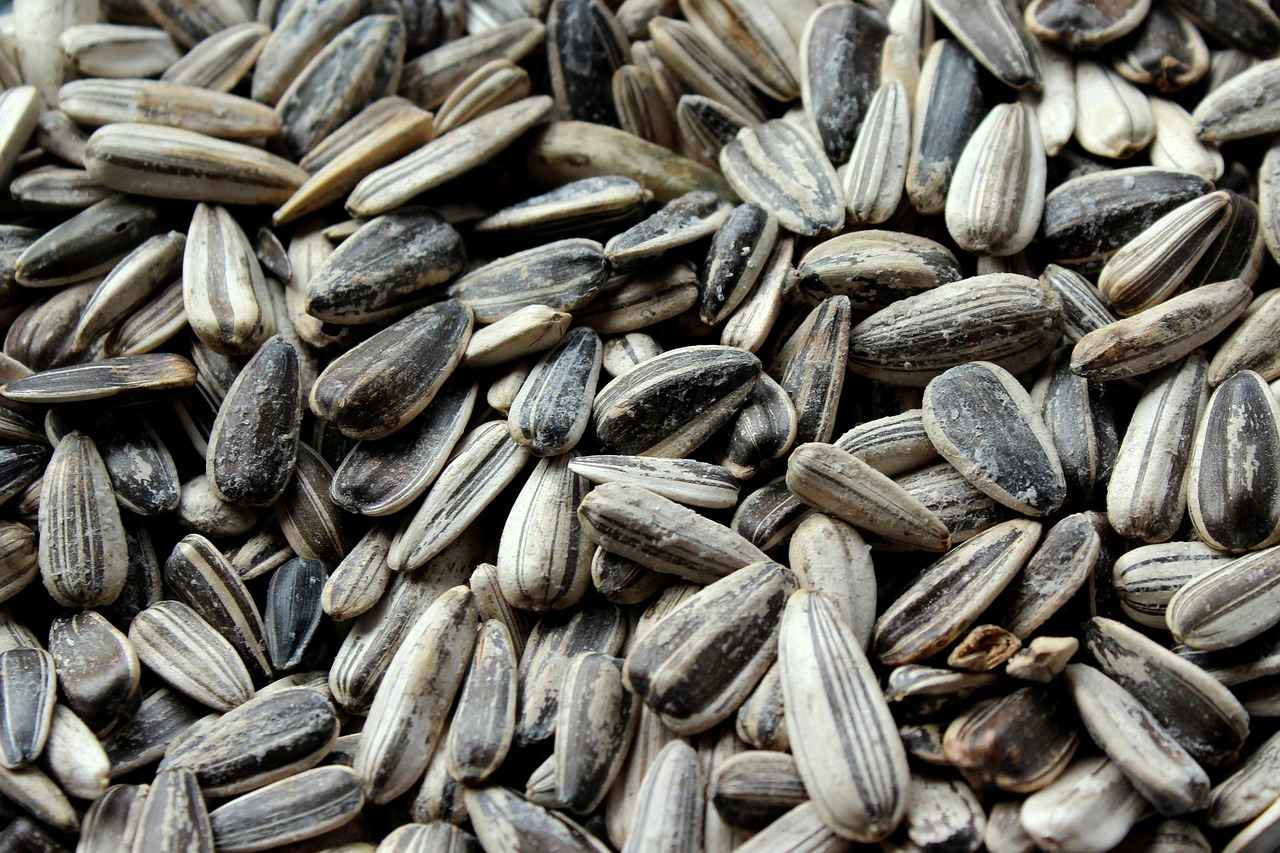
Health Benefits of Basil Seeds
Basil seeds, also known as sabja or tukmaria, are gaining popularity as a superfood due to their impressive health benefits. These tiny black seeds are derived from the sweet basil plant and are often used in various culinary traditions around the world. Their unique properties not only enhance the flavor of dishes but also contribute significantly to overall health.
Basil seeds offer a variety of health benefits that are worth exploring. Here are some of the most significant:
- Hydration: One of the standout benefits of basil seeds is their ability to keep the body hydrated. When soaked in water, they expand and form a gel-like consistency, making them an excellent addition to drinks, especially in hot climates.
- Weight Management: Basil seeds are low in calories but high in fiber, which can help promote a feeling of fullness. This can assist in weight management by curbing cravings and preventing overeating.
- Blood Sugar Regulation: These seeds may help regulate blood sugar levels by slowing down the absorption of carbohydrates. This property is particularly beneficial for individuals managing diabetes.
- Digestive Health: The high fiber content in basil seeds supports digestive health by promoting regular bowel movements and preventing constipation.
- Antioxidant Properties: Basil seeds are rich in antioxidants, which help combat oxidative stress and inflammation in the body, contributing to overall well-being.
Basil seeds have an incredible ability to absorb water, increasing their volume significantly. When consumed, they not only provide hydration but also help cool the body down, making them ideal for hot weather. Adding soaked basil seeds to beverages like lemonade or coconut water can create refreshing drinks that are both hydrating and nutritious.
Yes, basil seeds can be a great ally in weight loss efforts. Their high fiber content promotes a sense of fullness, reducing the likelihood of snacking between meals. This can lead to a decrease in overall calorie intake. Moreover, their ability to regulate blood sugar levels can help prevent sudden cravings, making it easier to stick to a healthy eating plan.
While basil seeds are generally safe for most people, it is important to consume them in moderation. Excessive intake can lead to gastrointestinal discomfort, including bloating or gas. Additionally, some individuals may experience allergic reactions, so it’s advisable to start with small quantities to assess tolerance.
Incorporating basil seeds into your diet is easy and versatile. Here are some practical ways to enjoy their benefits:
- Basil Seed Drinks: Soak basil seeds in water for about 30 minutes and add them to smoothies, juices, or flavored water for a nutritious boost.
- Desserts: Sprinkle soaked basil seeds on puddings, yogurt, or ice creams to add texture and health benefits.
- Salads: Mix basil seeds into salads for an extra crunch and nutritional enhancement.
In summary, basil seeds are a powerful superfood that offers numerous health benefits, including hydration, weight management, and blood sugar regulation. Their versatility makes them easy to include in various dishes, enhancing both flavor and nutrition.
Hydration and Cooling Effects
When it comes to staying hydrated and cool, especially during the sweltering months of summer, basil seeds emerge as a remarkable natural remedy. Known for their ability to absorb water, these tiny seeds can expand significantly when soaked, creating a gel-like consistency that offers a refreshing sensation. This unique property makes basil seeds an excellent addition to various beverages and dishes, particularly in hot climates where maintaining hydration is crucial.
Basil seeds, or sabja, have a remarkable capacity to absorb water—up to 10 times their weight. When soaked, they swell and form a gel-like substance that not only helps keep the body hydrated but also aids in regulating body temperature. This gel-like consistency can create a feeling of fullness, making them a great option for those looking to curb their appetite while ensuring they remain hydrated.
- Soaking: Before using, soak the basil seeds in water for about 30 minutes. This allows them to expand and develop their gel-like texture.
- In Beverages: Add soaked basil seeds to refreshing drinks such as lemonade, smoothies, or coconut water. They not only enhance hydration but also add a unique texture.
- In Desserts: Incorporate basil seeds into desserts like puddings or yogurt for an added health boost while enjoying a sweet treat.
In addition to their hydration properties, basil seeds boast several other health benefits:
- Rich in Nutrients: They are packed with essential nutrients, including dietary fiber, calcium, and magnesium, contributing to overall health.
- Antioxidant Properties: Basil seeds contain antioxidants that help combat oxidative stress in the body, promoting better health.
- Weight Management: The gel-like consistency of soaked basil seeds can promote a feeling of fullness, assisting in weight management.
While basil seeds are generally safe for most individuals, it is essential to consume them in moderation. Some people may experience mild digestive discomfort if they consume large quantities without adequate water. Additionally, those with allergies to basil or related herbs should exercise caution.
Incorporating basil seeds into your diet not only enhances hydration but also offers numerous health benefits. Their unique ability to form a gel-like consistency when soaked makes them an ideal ingredient for refreshing drinks and dishes, particularly in hot weather. By understanding how to use basil seeds effectively, you can enjoy their numerous benefits while keeping your body cool and hydrated.
Blood Sugar Regulation
Maintaining stable blood sugar levels is crucial for overall health, particularly for individuals with diabetes. One natural approach to achieving this balance involves the use of basil seeds. These tiny seeds, often overlooked, possess remarkable properties that can be beneficial for blood sugar regulation.
Basil seeds, also known as sabja or tukmaria, are rich in dietary fiber, which plays a significant role in managing blood sugar levels. The fiber content in basil seeds helps to slow down the absorption of carbohydrates in the digestive system. This slow absorption process leads to a more gradual release of glucose into the bloodstream, preventing sudden spikes in blood sugar levels.
When basil seeds are consumed, they absorb water and expand, forming a gel-like substance. This gel not only aids in digestion but also helps to create a barrier that slows carbohydrate digestion. As a result, the body experiences a more controlled release of sugar into the bloodstream, making basil seeds a valuable addition to the diet of those looking to manage their blood sugar levels.
- Improved Satiety: The high fiber content in basil seeds promotes a feeling of fullness, which can help reduce overall calorie intake and assist in weight management.
- Digestive Health: The gel-like consistency of soaked basil seeds can aid in digestion and promote regular bowel movements, contributing to overall gut health.
- Antioxidant Properties: Basil seeds are also rich in antioxidants, which can help combat oxidative stress and inflammation, further supporting metabolic health.
Incorporating basil seeds into your meals can be both easy and enjoyable. Here are some practical ways to add them to your diet:
1. Soak the seeds in water for about 30 minutes to an hour until they expand.2. Add them to smoothies for added fiber without altering the taste significantly.3. Mix soaked basil seeds into yogurt or oatmeal for a nutritious breakfast option.4. Create refreshing drinks by adding soaked seeds to lemonades or coconut water.5. Use them as a topping for desserts like puddings or ice creams to enhance texture and nutrition.
Basil seeds can be particularly beneficial for individuals with diabetes or those at risk of developing the condition. However, they can also serve as a healthy addition to the diets of anyone looking to improve their overall nutrition. The combination of fiber and antioxidants makes them a smart choice for those aiming to maintain stable energy levels throughout the day.
While basil seeds are generally safe for most individuals, it is essential to consume them in moderation. Overconsumption may lead to gastrointestinal discomfort. Additionally, individuals with allergies to basil should avoid these seeds to prevent any adverse reactions.
In summary, basil seeds offer a natural and effective way to help regulate blood sugar levels. Their unique properties, combined with their versatility in culinary applications, make them a valuable addition to any health-conscious diet.
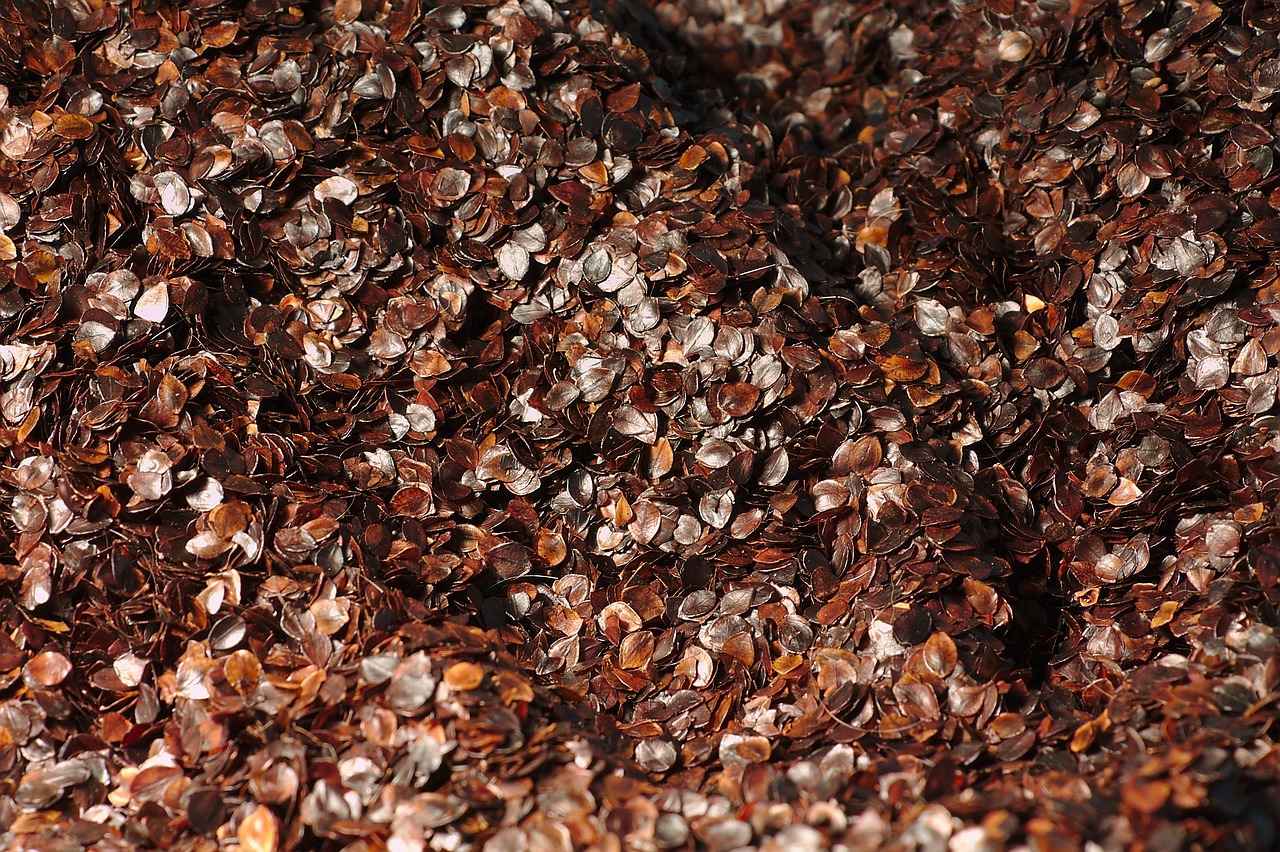
How to Incorporate Chia Seeds into Your Diet?
Chia seeds are not only a nutritional powerhouse but also incredibly versatile, making them an excellent addition to a variety of dishes. Their ability to absorb liquid and form a gel-like consistency allows them to be used creatively in both sweet and savory recipes. Here are some practical ways to incorporate chia seeds into your daily diet for a nutritional boost.
Chia seeds are rich in omega-3 fatty acids, fiber, and protein, making them an ideal choice for anyone looking to enhance their overall health. They are also loaded with essential minerals like calcium, magnesium, and phosphorus. By adding these tiny seeds to your meals, you not only increase the nutritional value but also promote better digestion and heart health.
One of the most popular ways to enjoy chia seeds is by making chia pudding. Simply mix 3 tablespoons of chia seeds with 1 cup of milk (or a dairy-free alternative) and let it sit overnight in the refrigerator. In the morning, you can add fruits, nuts, or honey for added flavor and nutrition. This makes for a quick and easy breakfast that keeps you full for hours.
For those who love smoothies, adding chia seeds is a game-changer. Just toss in a tablespoon of chia seeds into your favorite smoothie recipe. They blend seamlessly and provide a boost of fiber and omega-3s without altering the taste. This is a great way to enhance the nutritional profile of your drink.
Making homemade energy bars is another excellent way to incorporate chia seeds. Combine oats, nut butter, honey, and chia seeds in a bowl. Press the mixture into a baking dish, refrigerate until firm, and cut into bars. These energy bars are perfect for a quick snack on-the-go, providing sustained energy and nutrition.
Chia seeds can also serve as a natural thickening agent. When added to soups or sauces, they absorb liquid and create a thicker consistency. This is especially useful for those looking to reduce the calories from flour or cornstarch thickeners. Just remember to let the mixture sit for a few minutes to allow the chia seeds to expand.
Incorporating chia seeds into baked goods is another great option. You can add them to bread, muffins, or pancakes for an extra nutritional kick. Replace some of the flour in your recipes with ground chia seeds or sprinkle whole seeds on top before baking. Not only will this enhance the texture, but it will also boost the health benefits of your baked treats.
Chia seeds can also be used to create refreshing drinks. Soak a tablespoon of chia seeds in water or juice for about 20 minutes until they swell. This gel-like drink can be consumed as is or added to smoothies and flavored waters. It’s a fantastic way to stay hydrated, especially in hot weather.
Incorporating chia seeds into your diet is simple and offers numerous health benefits. Whether you choose to make chia pudding, enhance your smoothies, or bake with them, these tiny seeds can significantly boost the nutritional value of your meals. Start experimenting with chia seeds today, and enjoy their versatility and health benefits!
Chia Pudding Recipes
Chia pudding is not just a trendy dish; it’s a nutrient-dense breakfast option that has gained popularity for its simplicity and health benefits. By combining chia seeds with a liquid such as milk or yogurt and allowing them to soak overnight, you create a creamy, satisfying meal that can be customized in numerous ways. This article explores various that are not only delicious but also packed with essential nutrients.
Chia seeds are known for their high content of omega-3 fatty acids, fiber, and protein. When soaked, they absorb liquid and expand, forming a gel-like consistency that makes for a filling breakfast option. Here are some reasons why chia pudding is a fantastic choice:
- High in Nutrients: Chia seeds are rich in antioxidants, calcium, and magnesium.
- Easy to Prepare: Just mix, soak, and enjoy!
- Versatile: You can add various flavors and toppings to suit your taste.
To make a simple chia pudding, follow these steps:
Ingredients:- 1/4 cup chia seeds- 1 cup milk (or a dairy-free alternative)- 1-2 tablespoons sweetener (honey, maple syrup, or agave)- 1/2 teaspoon vanilla extract (optional)Instructions:1. In a bowl, combine chia seeds, milk, sweetener, and vanilla extract.2. Stir well to prevent clumping.3. Cover and refrigerate overnight (or for at least 4 hours).4. Stir again before serving and top with your favorite fruits or nuts.
Chia pudding can be easily flavored to suit your preferences. Here are some popular variations:
For a chocolatey treat, add:
- 2 tablespoons cocoa powder- 1 tablespoon chocolate chips (optional)
Mix these ingredients into the basic chia pudding recipe for a rich, indulgent flavor.
Add fresh or frozen berries to your pudding for a burst of flavor and antioxidants:
- 1/2 cup mixed berries (strawberries, blueberries, raspberries)
Fold the berries into the pudding before refrigerating for a refreshing breakfast.
For a taste of the tropics, include:
- 1/4 cup coconut milk- 1/2 cup diced mango or pineapple- Shredded coconut for topping
This combination will transport you to a sunny beach with every bite.
Chia pudding is best served chilled, and you can enhance it with various toppings:
- Fresh Fruits: Bananas, kiwi, or pomegranate seeds.
- Nuts and Seeds: Almonds, walnuts, or pumpkin seeds for added crunch.
- Granola: A sprinkle of granola can add texture and flavor.
Chia pudding is not only a delicious breakfast but also a versatile dish that can be tailored to fit any dietary preference. With minimal preparation, it can be a healthy addition to your morning routine, ensuring you start your day with energy and nutrients.
Adding to Smoothies
Incorporating superfoods into your daily diet can significantly enhance your nutritional intake, and chia seeds are a prime example of this. Their versatility makes them an excellent addition to various meals, particularly smoothies. But how exactly do chia seeds contribute to your smoothie experience?
Chia seeds are small but mighty. They are packed with essential nutrients that can transform an ordinary smoothie into a nutrient powerhouse. Here are some reasons why you should consider adding them:
- High Fiber Content: Chia seeds are an excellent source of dietary fiber, which aids in digestion and helps maintain a feeling of fullness. This makes them ideal for those looking to manage their weight.
- Rich in Omega-3 Fatty Acids: These seeds are one of the richest plant-based sources of omega-3s, essential for heart health and brain function.
- Minimal Flavor Impact: One of the best aspects of chia seeds is their ability to blend seamlessly into smoothies without significantly altering the flavor. This allows you to enjoy your favorite fruit combinations while reaping the health benefits.
To make the most out of chia seeds in your smoothies, consider the following preparation methods:
1. Soaking: Soak chia seeds in water or your favorite plant-based milk for about 15-30 minutes. This process allows them to expand and form a gel-like consistency, which can enhance the texture of your smoothie.2. Blending: Add the soaked chia seeds directly into your smoothie mixture. If you prefer a smoother texture, you can blend them dry, but be aware that they won’t expand until they are hydrated.
Here are a few delicious smoothie recipes that incorporate chia seeds:
- Berry Chia Smoothie: Blend together a cup of mixed berries, a banana, a tablespoon of chia seeds, and a cup of almond milk for a refreshing drink.
- Green Power Smoothie: Combine spinach, avocado, banana, chia seeds, and coconut water for a nutrient-dense green smoothie.
- Chocolate Chia Delight: Mix cocoa powder, banana, almond milk, and chia seeds for a rich, chocolatey treat that feels indulgent yet healthy.
To further enhance the benefits of chia seeds in your smoothies, consider the following tips:
- Balance Your Ingredients: Pair chia seeds with a variety of fruits and vegetables to ensure a wide range of nutrients.
- Monitor Portion Sizes: While chia seeds are healthy, moderation is key. A tablespoon or two is usually sufficient for boosting your smoothie.
- Stay Hydrated: Since chia seeds absorb a lot of water, ensure you’re drinking enough fluids throughout the day.
Incorporating chia seeds into your smoothies not only enhances their nutritional profile but also contributes to a healthier lifestyle. With their numerous health benefits and ease of use, chia seeds are a fantastic addition to any smoothie recipe.

How to Use Basil Seeds in Recipes?
Basil seeds, also known as sabja or tukmaria, are an underutilized ingredient that can elevate your culinary creations. These tiny seeds not only offer a unique texture but also provide a host of health benefits, making them a fantastic addition to your diet. In this section, we will explore various ways to incorporate basil seeds into your recipes, ensuring you can enjoy both their nutritional value and delightful crunch.
Basil seeds have gained popularity due to their nutritional profile. They are rich in dietary fiber, antioxidants, and essential fatty acids. When soaked in water, they expand and develop a gel-like consistency, which can enhance the texture of various dishes. Here are some creative ways to use basil seeds:
- Basil Seed Lemonade: Soak basil seeds in water for about 30 minutes until they swell. Combine them with freshly squeezed lemon juice, water, and a sweetener of your choice for a refreshing drink.
- Coconut Water Delight: Add soaked basil seeds to coconut water for a hydrating beverage. This combination not only tastes great but also provides essential electrolytes.
- Fruit-Infused Water: Enhance your water by adding soaked basil seeds along with slices of your favorite fruits, such as lemon, lime, or berries, for a flavorful twist.
Basil seeds can also be a delightful addition to various desserts, adding both texture and nutrition:
- Basil Seed Pudding: Mix soaked basil seeds with coconut milk and a natural sweetener. Let the mixture sit in the refrigerator for a few hours to thicken, creating a delicious pudding.
- Ice Cream Topping: Sprinkle soaked basil seeds over ice cream or yogurt for an unexpected crunch and added health benefits.
- Fruit Salad Enhancement: Toss basil seeds into a fruit salad to add a unique texture and nutritional boost, making your dessert not only tasty but also wholesome.
While basil seeds are often associated with sweet dishes, they can also be used in savory recipes:
- Salad Booster: Add soaked basil seeds to salads for an extra crunch and a boost of fiber. They pair well with leafy greens and vinaigrettes.
- Soups and Stews: Incorporate basil seeds into soups and stews for added texture and nutrition. They can absorb flavors and enhance the overall dish.
In addition to their culinary versatility, basil seeds offer numerous health benefits:
- Hydration: The gel-like consistency of soaked basil seeds helps keep you hydrated, making them perfect for hot weather.
- Weight Management: Their high fiber content can aid in digestion and help you feel full, making them beneficial for weight management.
- Blood Sugar Regulation: Basil seeds may help regulate blood sugar levels, making them a smart choice for those managing diabetes.
Incorporating basil seeds into your diet is not only easy but also a delicious way to enhance your meals. Their versatility allows you to experiment with various recipes, ensuring you can enjoy their unique properties in both sweet and savory dishes. So, the next time you’re in the kitchen, consider adding these tiny seeds for a nutritious boost!
Basil Seed Drinks
Basil seeds are not only a culinary delight but also a nutritional powerhouse that can enhance your beverage choices. These tiny seeds, known for their unique properties, can be soaked in water to create a refreshing drink that is both hydrating and beneficial for your health.
When soaked, basil seeds absorb water and swell up, forming a gel-like consistency. This characteristic not only adds a unique texture to drinks but also contributes to their health benefits. The seeds are rich in dietary fiber, which can aid in digestion and promote a feeling of fullness.
- Soaking the Seeds: Start by rinsing a tablespoon of basil seeds under running water. Then, soak them in a cup of water for about 30 minutes. You will notice that they expand and develop a gel-like coating.
- Mixing with Beverages: After soaking, you can add the basil seeds to various drinks. They pair exceptionally well with lemonade, coconut water, or even smoothies, enhancing both flavor and nutrition.
Here are some delicious ways to incorporate basil seeds into your drinks:
- Basil Seed Lemonade: Combine freshly squeezed lemon juice, water, and sweetener of your choice. Add soaked basil seeds and stir well for a refreshing summer drink.
- Coconut Water Delight: Mix coconut water with soaked basil seeds and a splash of lime juice for a hydrating drink, perfect for hot days.
- Fruit Smoothies: Blend your favorite fruits with yogurt or milk, and add soaked basil seeds for added texture and nutrition.
Incorporating basil seeds into your beverages offers several health benefits:
- Hydration: The gel-like texture helps keep you hydrated, making it an excellent choice for hot weather.
- Weight Management: The high fiber content may help control appetite, making these drinks a smart choice for those looking to manage their weight.
- Blood Sugar Regulation: Basil seeds may assist in stabilizing blood sugar levels, which is beneficial for individuals with diabetes.
While chia seeds are popular, basil seeds offer unique advantages. They are lower in calories and provide a different flavor profile, making them an excellent alternative for those looking to diversify their diet. Additionally, the cooling properties of basil seeds make them particularly appealing in warmer climates.
In conclusion, basil seed drinks are a delightful and healthy addition to your beverage repertoire. By soaking these seeds and incorporating them into various drinks, you can enjoy a refreshing and nutritious experience that not only quenches your thirst but also supports your overall health.
Incorporating in Desserts
When it comes to adding a nutritious twist to your desserts, chia seeds and basil seeds are exceptional options. Both of these superfoods not only enhance the flavor but also provide a plethora of health benefits. Let’s dive into how you can incorporate these seeds into your favorite sweet treats.
Chia seeds are incredibly versatile and can be used in various dessert recipes. Their ability to absorb liquid and form a gel-like consistency makes them ideal for puddings and smoothies. Here are some popular ways to use chia seeds:
- Chia Seed Pudding: Combine chia seeds with your choice of milk (dairy or plant-based), sweetener, and flavorings like vanilla or cocoa. Let the mixture sit overnight in the refrigerator, and you’ll have a creamy, nutritious pudding ready to enjoy.
- In Smoothies: Add a tablespoon of chia seeds to your smoothie for an extra boost of fiber and omega-3 fatty acids without changing the flavor.
- Baking: Incorporate chia seeds into muffin or bread recipes for added texture and nutrition.
Basil seeds, known for their unique properties, can also elevate your desserts. When soaked in water, they expand and develop a gelatinous coating, making them a fun and nutritious addition to various dishes. Here are some creative ways to use basil seeds:
- Refreshing Beverages: Soak basil seeds and add them to lemonade or iced tea for a refreshing drink that also offers hydration.
- Fruit Salads: Mix soaked basil seeds into fruit salads for added texture and a nutritional boost.
- Frozen Treats: Incorporate them into ice creams or sorbets for a chewy, unique texture that complements the creaminess.
For those looking to maximize the health benefits, combining both chia and basil seeds in desserts can be a game-changer. The synergy of these seeds not only enhances the nutritional profile but also adds delightful textures. Here’s how you can do it:
- Layered Parfaits: Create a dessert parfait by layering chia seed pudding with yogurt and fruit, then topping it with soaked basil seeds for a crunchy finish.
- Healthy Energy Bites: Blend both seeds with oats, nut butter, and honey, then roll into bite-sized balls for a quick energy snack.
Incorporating chia and basil seeds into your desserts not only satisfies your sweet tooth but also contributes to overall health. Here are some benefits:
- Rich in Nutrients: Both seeds are packed with fiber, protein, and essential fatty acids, which can help maintain a balanced diet.
- Supports Digestion: The high fiber content in these seeds promotes healthy digestion and can help prevent constipation.
- Hydration: Basil seeds, in particular, help with hydration, making them perfect for summer desserts.
In summary, both chia seeds and basil seeds offer unique textures and health benefits when incorporated into desserts. From puddings to frozen treats, these seeds can transform ordinary recipes into deliciously nutritious options. So, next time you’re whipping up a dessert, consider adding these superfoods for an extra health boost!
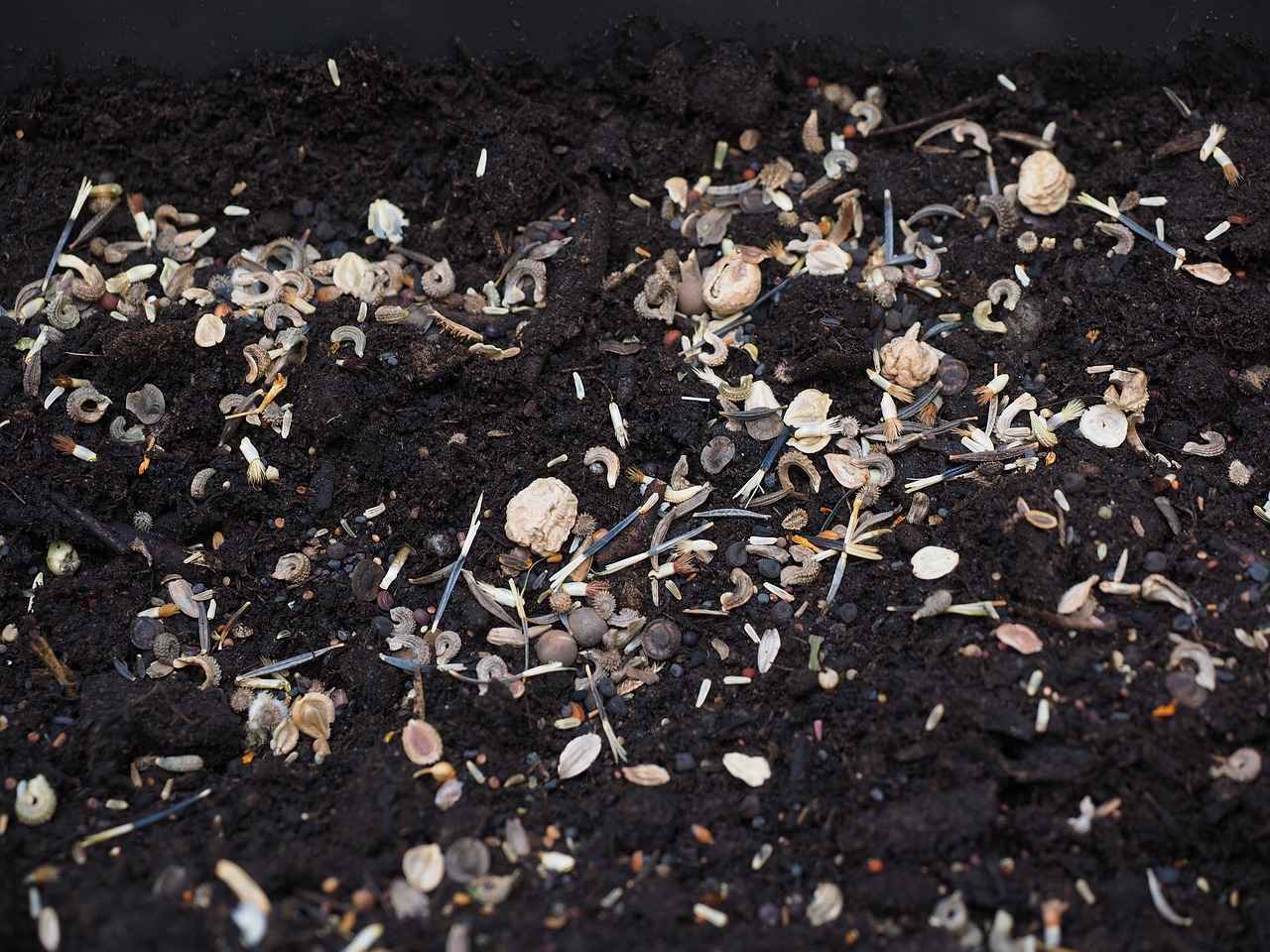
Which Seed Is Better for Weight Loss?
When it comes to weight loss, the choice between chia seeds and basil seeds can be pivotal. Both of these seeds offer unique benefits that cater to different dietary needs and preferences. Understanding their mechanisms can help you decide which one aligns better with your weight loss goals.
Chia seeds are renowned for their ability to promote satiety. When consumed, they can absorb up to 12 times their weight in water, expanding in the stomach. This expansion creates a gel-like substance that can help you feel full for a longer duration. This can be particularly beneficial for those trying to manage their caloric intake.
- High Fiber Content: Chia seeds are rich in dietary fiber, which aids in digestion and helps regulate blood sugar levels. This can prevent sudden cravings and help maintain a stable energy level.
- Protein Power: With a decent amount of protein, chia seeds contribute to muscle maintenance while losing weight, ensuring that the body burns fat rather than muscle.
Basil seeds, often used in traditional cuisines, are another excellent option for those looking to lose weight. These seeds are particularly valued for their low-calorie count and high fiber content, which can help with weight management.
- Blood Sugar Regulation: Basil seeds help slow down carbohydrate absorption, which can be beneficial for those managing blood sugar levels. This regulation can lead to fewer cravings and better appetite control.
- Hydration Benefits: When soaked in water, basil seeds expand and provide a cooling effect, which is particularly refreshing in hot climates. Staying hydrated is crucial for weight loss, as it helps maintain metabolism and energy levels.
The effectiveness of chia seeds versus basil seeds in weight loss largely depends on individual dietary preferences and needs. For those who struggle with overeating, chia seeds may be the better choice due to their ability to promote feelings of fullness. On the other hand, individuals looking for a low-calorie option that aids in blood sugar control might find basil seeds more beneficial.
Incorporating chia and basil seeds into your meals can be simple and enjoyable. Here are some practical ways to include them in your diet:
- Chia Seed Pudding: Combine chia seeds with milk or a dairy-free alternative, let them soak overnight, and enjoy a nutritious breakfast.
- Basil Seed Drinks: Soak basil seeds in water and add them to beverages like smoothies or lemonades for a refreshing twist.
Both seeds can be added to salads, yogurt, and baked goods, making them versatile additions to any diet.
While both chia and basil seeds are generally safe for consumption, moderation is key. Overconsumption of chia seeds can lead to digestive issues due to their high fiber content. Similarly, some individuals may experience allergies or gastrointestinal discomfort from basil seeds. It’s advisable to start with small amounts and increase gradually.
In conclusion, both chia and basil seeds offer valuable benefits for weight loss, but their effectiveness can vary based on individual dietary habits and preferences. By understanding their unique properties, you can make an informed choice that best suits your weight management goals.
Chia Seeds and Satiety
When it comes to managing appetite and supporting weight loss, chia seeds have gained significant attention due to their unique ability to promote a feeling of fullness. This characteristic is primarily attributed to their high fiber content and their remarkable capacity to absorb liquid. Let’s explore how chia seeds can be a beneficial addition to your diet for controlling appetite and reducing overall calorie intake.
Chia seeds are known for their incredible ability to expand in the stomach. When soaked in liquid, they can absorb up to 12 times their weight, forming a gel-like substance. This expansion not only helps to fill the stomach but also slows down the process of digestion. As a result, you may experience a prolonged sensation of fullness, which can significantly aid in appetite control.
Fiber is a crucial component in weight management, and chia seeds are an excellent source. A single ounce of chia seeds contains about 11 grams of fiber, which contributes to digestive health and promotes a feeling of satiety. High-fiber foods tend to be more filling, which can help reduce the likelihood of overeating.
- Chia Pudding: Combine chia seeds with your choice of milk or plant-based alternatives, let them soak overnight, and enjoy a nutritious breakfast that keeps you satisfied.
- Smoothies: Add chia seeds to your smoothies for an extra fiber boost. They blend well without altering the flavor, enhancing the nutritional profile of your drink.
- Baking: Incorporate chia seeds into baked goods like muffins or bread for added texture and satiety.
Several studies have indicated that incorporating chia seeds into your diet may assist in weight loss efforts. One study found that participants who included chia seeds in their meals reported a significant decrease in appetite and a reduction in overall calorie intake. This effect can be particularly beneficial for those struggling with cravings or emotional eating.
While chia seeds are exceptional for promoting fullness, they are not the only seeds that can aid in weight management. Basil seeds, for instance, also expand when soaked in water, providing a similar effect. However, chia seeds are often preferred due to their higher nutrient density, including omega-3 fatty acids and antioxidants.
Despite their benefits, it’s essential to consume chia seeds with adequate hydration. Their high fiber content can lead to digestive discomfort if not paired with sufficient liquids. It is recommended to drink plenty of water when incorporating chia seeds into your diet to maximize their benefits and minimize any potential side effects.
In summary, chia seeds are a powerful ally in appetite control and weight management. Their unique ability to expand in the stomach, combined with their high fiber content, makes them an excellent choice for anyone looking to reduce calorie intake and enhance satiety. By incorporating chia seeds into various meals and snacks, you can enjoy their numerous health benefits while effectively managing your appetite.
Basil Seeds for Weight Management
Basil seeds, also known as sabja or tukmaria, have gained popularity as a health food, particularly for those looking to manage their weight. These tiny seeds, derived from the sweet basil plant, are packed with nutrients that can aid in weight management and overall wellness. One of the primary ways basil seeds assist in this area is through their high fiber content.
One of the key benefits of basil seeds is their ability to promote a feeling of satiation. When consumed, these seeds absorb water and expand in the stomach, creating a gel-like substance. This expansion can help individuals feel fuller for a longer period, which may reduce the likelihood of overeating. By incorporating basil seeds into meals or snacks, individuals may find it easier to control their appetite and stick to their dietary goals.
The high fiber content in basil seeds is instrumental in weight management. Fiber is known for its ability to slow down digestion, which helps maintain stable blood sugar levels. Stable blood sugar levels are crucial for preventing sudden cravings and energy crashes that can lead to unhealthy snacking. By keeping blood sugar levels in check, basil seeds help mitigate the urge to reach for sugary or high-calorie foods.
- Hydration: When soaked in water, basil seeds can help keep the body hydrated, which is essential for maintaining energy levels and metabolic function.
- Blood Sugar Regulation: The gel-like consistency formed by soaked basil seeds helps slow the absorption of carbohydrates, further assisting in blood sugar management.
- Antioxidant Properties: Basil seeds are rich in antioxidants, which can help combat oxidative stress and inflammation, promoting overall health.
Integrating basil seeds into your diet is easy and versatile. Here are some practical ways to do so:
- Basil Seed Drinks: Soak basil seeds in water for about 30 minutes and add them to smoothies, juices, or even plain water for a refreshing drink.
- In Desserts: Sprinkle soaked basil seeds on top of puddings, yogurt, or ice cream for added texture and nutrition.
- In Salads: Add a tablespoon of soaked basil seeds to salads for an extra crunch and nutritional boost.
In conclusion, basil seeds offer a wealth of benefits that can support weight management efforts. Their ability to promote fullness, regulate blood sugar levels, and provide essential nutrients makes them a valuable addition to a healthy diet. By incorporating these seeds into various meals and snacks, individuals can enjoy their numerous health benefits while working towards their weight goals.

Potential Side Effects of Chia and Basil Seeds
When considering the incorporation of chia and basil seeds into your diet, it is essential to understand that while both seeds are generally considered safe, they can lead to certain side effects for some individuals. Recognizing these potential issues is crucial for making informed dietary choices.
Chia seeds are known for their numerous health benefits; however, they can also cause some adverse effects, particularly when consumed in excess. Here are some common side effects:
- Digestive Issues: Due to their high fiber content, excessive consumption of chia seeds may lead to digestive discomfort, including bloating, gas, and constipation. It is recommended to gradually increase intake and drink plenty of water to mitigate these effects.
- Allergic Reactions: Although rare, some individuals may experience allergic reactions to chia seeds, which can manifest as skin rashes, itching, or gastrointestinal distress. If you notice any unusual symptoms after consuming chia seeds, it is best to consult a healthcare professional.
Basil seeds, while beneficial, can also pose certain risks if not consumed mindfully. Here are some potential side effects:
- Allergic Reactions: Similar to chia seeds, basil seeds may trigger allergic reactions in some people. Symptoms can include hives, swelling, or difficulty breathing. Individuals with known allergies to basil should avoid these seeds.
- Gastrointestinal Discomfort: Overconsumption of basil seeds can lead to gastrointestinal issues, such as diarrhea or stomach cramps, particularly if they are not soaked properly before consumption. It is essential to follow recommended serving sizes and preparation methods.
To enjoy the health benefits of chia and basil seeds while minimizing the risk of side effects, consider the following tips:
- Start Slow: If you are new to these seeds, begin with small amounts to assess your body’s reaction. Gradually increase the quantity as your digestive system adjusts.
- Stay Hydrated: Both chia and basil seeds absorb water and expand. Consuming them without adequate hydration can lead to digestive discomfort. Always drink sufficient water when incorporating these seeds into your meals.
- Follow Recommended Serving Sizes: Adhere to suggested serving sizes to avoid excessive intake. For chia seeds, a typical serving is about 1-2 tablespoons, while for basil seeds, 1 tablespoon is usually sufficient.
In conclusion, while chia and basil seeds offer various health benefits, it is essential to be aware of the potential side effects they may cause in some individuals. By understanding these risks and taking appropriate precautions, you can safely enjoy the nutritional advantages these superfoods provide.
Chia Seeds Side Effects
When it comes to superfoods, chia seeds are often celebrated for their numerous health benefits. However, it is important to be aware of the potential side effects associated with excessive consumption of these tiny seeds. This article will delve into the side effects of chia seeds, particularly focusing on digestive issues that may arise due to their high fiber content.
Chia seeds are incredibly rich in dietary fiber, containing approximately 34 grams of fiber per 100 grams. While fiber is essential for maintaining digestive health, consuming it in large quantities without adequate hydration can lead to discomfort. The soluble fiber in chia seeds absorbs water, expanding significantly in the stomach. This property can be beneficial for promoting satiety, but it can also result in digestive complications if not properly managed.
One of the primary concerns with consuming too many chia seeds is the potential for digestive issues. When chia seeds are ingested without sufficient water, they can absorb moisture from the digestive tract, leading to:
- Constipation: The high fiber content can cause stools to become hard and difficult to pass.
- Bloating: Excessive fiber intake can lead to a feeling of fullness and discomfort in the abdomen.
- Gas: Increased fiber consumption can ferment in the gut, producing gas and discomfort.
To enjoy the health benefits of chia seeds while minimizing the risk of digestive issues, it is crucial to consume them responsibly. Here are some tips:
- Hydration: Always soak chia seeds in water or another liquid before consumption. This allows them to expand properly and reduces the risk of digestive discomfort.
- Gradual Introduction: If you are new to chia seeds, start with small amounts and gradually increase your intake to allow your digestive system to adjust.
- Balanced Diet: Ensure that your overall diet includes a variety of fiber sources, along with plenty of fluids, to support digestive health.
While chia seeds are generally safe for most people, certain individuals may need to be cautious:
- Those with existing digestive disorders should consult a healthcare professional before adding chia seeds to their diet.
- Individuals with a history of allergies may want to proceed with caution, as chia seeds can cause allergic reactions in some cases.
In summary, while chia seeds offer an array of health benefits, it is essential to consume them in moderation and with adequate hydration to avoid potential digestive issues. By being mindful of how you incorporate chia seeds into your diet, you can enjoy their nutritional advantages without the discomfort of excessive fiber intake.
Basil Seeds Side Effects
Basil seeds, also known as sabja or tukmaria seeds, are celebrated for their numerous health benefits and culinary versatility. However, like many health foods, they can also have potential side effects that consumers should be aware of.
While basil seeds are generally safe for most people, certain individuals may experience adverse reactions. Here are some of the common side effects associated with basil seeds:
- Allergic Reactions: Some individuals may experience allergic reactions after consuming basil seeds. Symptoms can include itching, swelling, or hives. If you notice any of these symptoms, it is advisable to discontinue use and consult a healthcare professional.
- Gastrointestinal Discomfort: Consuming basil seeds in large quantities may lead to gastrointestinal issues such as bloating, gas, or diarrhea. It is essential to consume these seeds in moderation to avoid such discomfort.
- Potential Interactions with Medications: Basil seeds may interact with certain medications, particularly those related to blood sugar control. If you are on medication for diabetes, it is crucial to consult with a healthcare provider before adding basil seeds to your diet.
To enjoy the health benefits of basil seeds while minimizing the risk of side effects, consider the following guidelines:
- Moderation is Key: Start with a small amount, such as one teaspoon, and gradually increase your intake as your body adjusts.
- Soak Before Consumption: Soaking basil seeds in water for about 30 minutes before consumption can help reduce the risk of gastrointestinal discomfort. This process allows the seeds to expand and become gelatinous, making them easier to digest.
- Stay Hydrated: Always drink plenty of water when consuming basil seeds. This helps prevent any digestive issues and ensures that the seeds can expand properly in the stomach.
While many people can enjoy basil seeds without issue, certain groups should be cautious:
- Individuals with Allergies: Anyone with a known allergy to basil or related plants should avoid basil seeds.
- Pregnant and Nursing Women: There is limited research on the safety of basil seeds during pregnancy and lactation, so it is best to consult a healthcare provider.
- People with Digestive Disorders: Those with pre-existing digestive issues may want to avoid basil seeds, as they could exacerbate symptoms.
In summary, while basil seeds offer a range of health benefits, it is essential to be aware of their potential side effects. Consuming them in moderation and following safety guidelines can help you enjoy their advantages without adverse reactions. If you have any concerns or experience discomfort after consuming basil seeds, it is always best to seek advice from a healthcare professional.
Frequently Asked Questions
- What are the main differences between chia seeds and basil seeds?
Chia seeds are known for their high omega-3 fatty acid content and ability to absorb water, expanding in the stomach to promote fullness. Basil seeds, on the other hand, are lower in calories and are often used for their cooling properties and digestive benefits.
- Can I use chia seeds and basil seeds interchangeably in recipes?
While both seeds can add nutrition and texture to dishes, they have different properties. Chia seeds are great for thickening and adding omega-3s, while basil seeds provide a unique gel-like texture when soaked. It’s best to use them as intended for the best results.
- How should I store chia seeds and basil seeds?
Both chia and basil seeds should be stored in a cool, dry place, preferably in an airtight container. This helps maintain their freshness and nutritional value. If stored properly, they can last for several months.
- Are there any side effects of consuming chia and basil seeds?
Yes, consuming too many chia seeds can lead to digestive issues due to their high fiber content, especially if not enough water is consumed. Basil seeds may cause allergic reactions in some individuals, so it’s best to start with small amounts.
- Which seeds are better for weight loss?
Both chia and basil seeds can aid in weight loss. Chia seeds promote a feeling of fullness, while basil seeds help regulate blood sugar levels, preventing cravings. Your choice may depend on personal dietary preferences.
